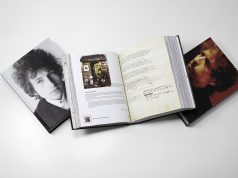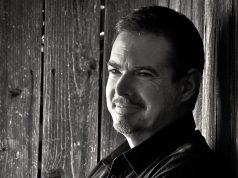
“It sounded like the voice that I thought in,” says David Lipsky about the captivating literary style of novelist and essayist David Foster Wallace. “Which of course is what you’re trying to do as a writer. And he’d done it! It was amazing! I was so thrilled. I faxed it and copied it and forced it on people, the way I’m forcing it on you now. Everyone I know was doing that. You’d go to any party and people were talking about him.”
Much remains to be explored about the short-lived career of Wallace, considered by many to be America’s most important turn-of-the-century literary great. For the rising star’s throng of newly won fans throughout the 1990s, the peak always seemed just one crescendo away. And if his September 2008 suicide served as punctuation to his condensed canon of work, it was more like an ellipsis —three ponderous dots signifying some elusive, incomplete thought.
The task of filling in those blanks fell almost naturally into the hands of Lipsky, a Rolling Stone contributing editor and longtime fan. And if his award-winning profile of Wallace published in Rolling Stone after the author’s suicide didn’t reveal the essence of Wallace’s trajectory and puzzling death, now comes the much-anticipated publication of Lipsky’s 304-page interview detailing the five-day road trip taken with the author back in 1996. At the time, on the tail-end of Wallace’s book-signing tour to promote his first novel Infinite Jest, Rolling Stone publisher Jann Wenner dispatched Lipsky to accompany Wallace and write a feature profile about America’s then most talked-about writer. Naturally, the journalist was overjoyed.
“I was a huge fan,” says Lipsky, explaining his (and much of New York’s) whirlwind infatuation with Wallace’s work. “When his second book came out—a book of stories called A Girl With Curious Hair — everyone in the city was passing it around. I knew people at Harper’s [Wallace’s principle publishing venue] and whenever he came in, they talked about him as though it were an incredible visitation by this great literary UFO who landed for a few days. His first really long Harper’s piece came out in the summer of ‘94. It was about going to the state fair, and it was amazingly, unnervingly good. It was his way of capturing how people’s brain voices work.”
Which seemed to embody the crux of Wallace’s style. The ensuing five-day road trip was more a core-sampling expedition for Lipsky as Wallace opened up about his life — a rare occurrence. And as Lipsky says, “He had pretty much decided to tell his story, which I thought was great.” Drifting down interstates in a rented Pontiac Grand Am, bouncing from bookstore to bookstore, hanging out in Wallace’s classrooms as he taught, the two writers undertook the project as a joint venture — Wallace taking an essayist’s point of view, Lipsky a profiler’s.
Unfortunately, Lipsky’s original feature for Rolling Stone was never published, and until now, the book-length transcripts have remained a shelved morsel of insider’s knowledge. Printed almost verbatim from Lipsky’s tapes and written notes, the volume—titled Although Of Course You End Up Becoming Yourself — reads almost like a mixed-media script for film, stage and radio, complete with slug lines and set descriptions. And despite Wallace continuously turning off the tape recorder to maintain his poise, the result is raw candor, and probably the closest thing to an unbiased biography that’s likely to see print. As Lipsky demonstrates page after page, for Wallace, the style, the artist, the teacher and the man were inseparable elements.
“There’s an early moment when David said, ‘You’re writing about me and that is extremely disturbing, because I want to control the image of me that’s coming across,’“ Lipsky explains. “I thought the most fair thing for him was to print it exactly as it was. Here’s everything that’s said for five days while we were in cars and hotel rooms and at bookstores. There’s a part in the introduction where a really good friend of his is talking about how great it was just to hang around him. I thought, ‘Here’s the best way of getting that across — just let the reader have the experience that I had.’ And it’s great because he talks the way he writes. For me, reading this was like reading one more great thing by him.”














